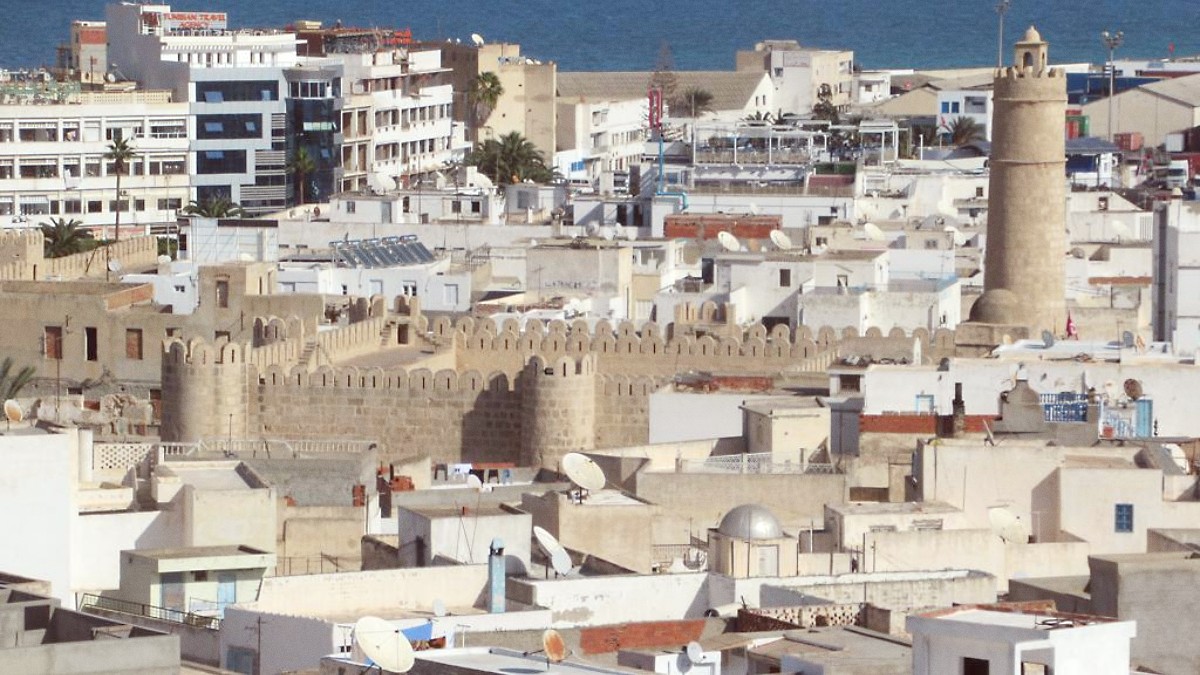
Central Tunisia, Tunisia
During Summer (June - August), Sousse becomes a sun-drenched destination. Average daytime temperatures range from 30°C to 33°C (86°F to 91°F). Temperatures often exceed 35°C (95°F), notably in July and August. Humidity feels high, especially near the coast, adding to the heat's intensity. Rainfall is minimal or non-existent during these months. The Mediterranean Sea reaches its warmest temperatures, making it suitable for swimming and water sports. This period represents Sousse’s high season.
The high season brings larger crowds and higher prices for accommodation and flights. Consider the intense heat for extensive sightseeing; hydration and sun protection hold strong importance. Autumn (September - November) holds a pleasant transition. Temperatures remain warm and comfortable, ranging from 20°C to 28°C (68°F to 82°F). Rainfall begins to increase, specifically in November, but sunny days still dominate. This period, along with spring, represents the shoulder season.
Sousse does not experience monsoons or hurricanes. Strong winds occur, notably during transitional seasons, which might affect coastal activities. Summer heatwaves present a special weather consideration. During these periods, staying hydrated, seeking shade, and using ample sun protection stand important to avoid heatstroke or sunburn.
For beach activities and water sports, the period from June to September holds as ideal. For sightseeing and cultural exploration, a visit during April-May or September-October brings the most comfortable temperatures. March-May and October-November offer conditions for hiking and other outdoor activities in the surrounding region.
Intense sun and heat possible.
Beach lovers and water sports enthusiasts.
High temperatures, humidity, large crowds, higher prices.
Pleasant for varied activities.
Sightseeing, cultural exploration, hiking.
Moderate prices, fewer crowds, some seasonal business closures late autumn.
Ideal for cultural tours.
Historical exploration, lowest prices, lush landscapes.
Sea too cold for swimming, some tourist-oriented businesses closed.
For short tourist stays, typically up to 90 days, many nationalities do not require a visa for Tunisia. Citizens from countries including the United States, Canada, the United Kingdom, European Union (Schengen Area) member states, Australia, New Zealand, Japan, and South Korea generally do not need a pre-arranged visa for stays up to 90 days. Visitors from these countries receive an entry stamp upon arrival, indicating their permitted length of stay. Always confirm the current visa policy with a Tunisian embassy or consulate in your country before travel.
Citizens from countries like India, China, South Africa, and various others need to obtain a visa in advance. The application process typically involves submitting a completed visa application form, a valid passport, recent passport-sized photographs, and supporting documents. These documents often include proof of onward travel, accommodation details, and evidence of sufficient funds for your stay. Start the visa application process well in advance of your planned departure date, as processing times vary. Contact your nearest Tunisian embassy or consulate for specific instructions.
Valid for at least six months beyond your intended departure date from Tunisia.
Proof of onward travel is advisable to show immigration officials.
Carry booking confirmations or a letter of invitation.
Be prepared to show proof of adequate financial means.
Usually for visa applications; typically not at the border for visa-exempt entry.
The local currency in Tunisia is the Tunisian Dinar (TND). The Dinar is a closed currency. You will exchange your foreign currency upon arrival in Tunisia and exchange any leftover Dinars before you depart.
Exchange foreign currency at banks, official exchange offices, major hotels, and airports. Euros (EUR), US Dollars (USD), and British Pounds (GBP) are widely accepted for exchange. Always keep your exchange receipts; they are necessary to convert any remaining TND back to your original currency upon departure.
Tipping is appreciated but not mandatory in Tunisia.
Prices fluctuate based on season and individual choices.
Carry small Tunisian Dinar denominations for daily transactions.
Sousse is generally considered safe for tourists. Petty crime, like pickpocketing and bag snatching, occurs, especially in crowded tourist areas.
No mandatory vaccinations exist for entry into Tunisia. Routine vaccinations should be up-to-date (Measles, Mumps, Rubella; Diphtheria, Tetanus, Pertussis; Varicella; Polio; Influenza). Hepatitis A, Hepatitis B, and Typhoid vaccinations are generally recommended for most travelers.
Rabies vaccination might be advised for travelers spending significant time outdoors, working with animals, or visiting remote regions where animal contact is possible. Always consult a healthcare professional well in advance of your travel date for personalized recommendations.
Sousse has public hospitals and private clinics. Private clinics generally hold superior facilities and may have English-speaking staff. They hold higher costs than public options.
Ambulance/Medical Emergency: Dial 190
Tap water is generally not safe for drinking. Use bottled water.
Sousse is generally safe for tourists. Petty crime, like pickpocketing and bag snatching, can occur, especially in crowded tourist areas like the Medina, souks, and public transportation hubs.
Police: Dial 197
Be vigilant of your belongings in crowded areas. Avoid displaying large amounts of cash.
Tunisia lies in a seismically active zone, but major destructive earthquakes are rare. Minor tremors occur. Heavy rainfall, specifically in autumn and winter, occasionally leads to localized flash flooding.
Fire Department: Dial 198
Extreme heatwaves are possible during summer. Follow sun protection and hydration advice.
| Coverage Area | What it Covers | Benefit |
|---|---|---|
| Medical Emergencies | Hospital stays, doctor visits, prescription medications, emergency medical evacuation. | Peace of mind for unexpected health issues. |
| Trip Interruption/Cancellation | Unforeseen events like illness, family emergencies, natural disasters. | Financial protection for non-refundable expenses. |
| Lost/Stolen Baggage | Personal belongings lost, stolen, or damaged during your trip. | Reimbursement for essential items. |